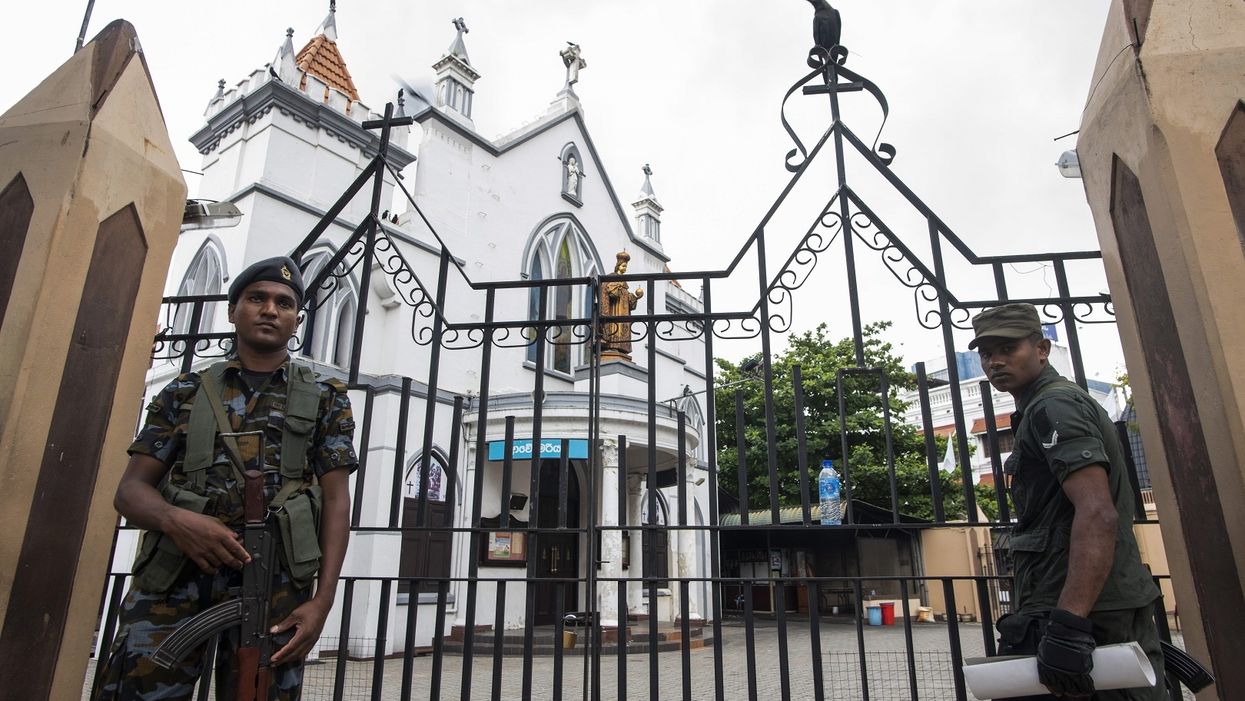
JEWEL SAMAD/AFP/Getty Images

The order doesn't specifically name burqas or niqabs, but it is believed to be targeting them
Sri Lanka has announced a complete ban on all face coverings following the terror attacks targeting hotels and Christian churches on Easter Sunday.
On Easter Sunday, more than 300 people were killed and at least 450 people were injured by coordinated suicide attacks on churches and hotels. ISIS has claimed responsibility for the attack, but local authorities are investigating whether it was carried out by a local terror group known as the National Tawheed Jamath.
The new rule bans "All sorts of face covers that hinders the identification of individuals in a way that threatens national security." The declaration did not specifically single out Muslim headscarves, however, it is largely understood to be targeting those. Only last week, a member of Sri Lanka's parliament had suggested a ban on burqas citing national security.
The niqab and burka, which both cover the face, are only worn by a minority of Muslim women on the island, according to the BBC.
According to the CIA World Factbook, around 9.7 percent of the Sri Lankan population identifies as Muslim. Most Sri Lankans (70.2 percent) are Buddhist, and there are significant Hindu and Christian minorities.
According to the statement for Sri Lanka's president, Maithripala Sirisena, the decision was made "to strengthen national security as well as to not inconvenience any demographic group so as to create a peaceful and harmonious society in Sri Lanka."
The new rule took effect on Monday.
Several European nations, including Denmark, Belgium, Austria, France, the Netherlands, and Bulgaria, have also banned burqas, citing both safety concerns as well as suggestions that the full coverage garments worn by some Muslim women are a sign of their oppression. Individual cities in other countries like Italy and Spain have also banned these garments.